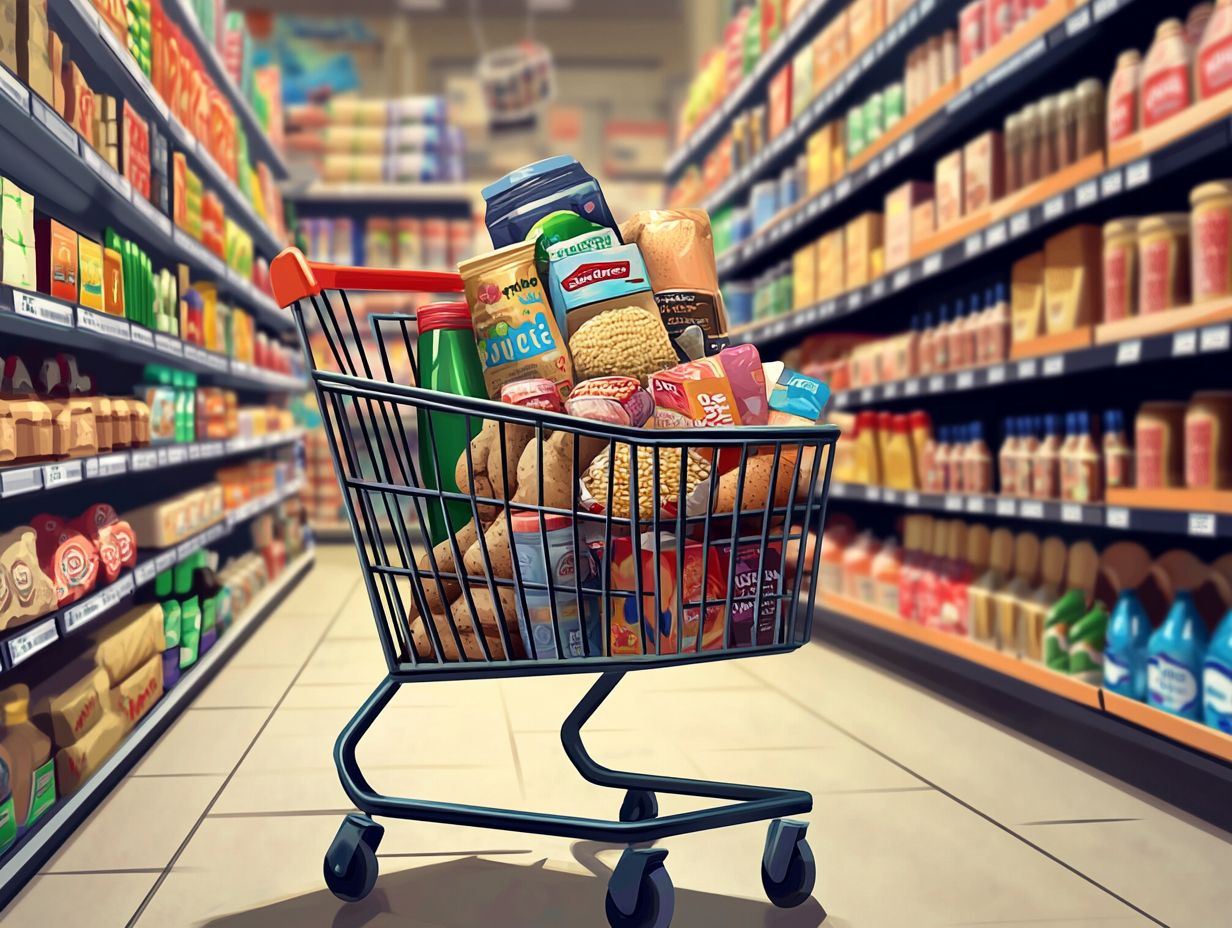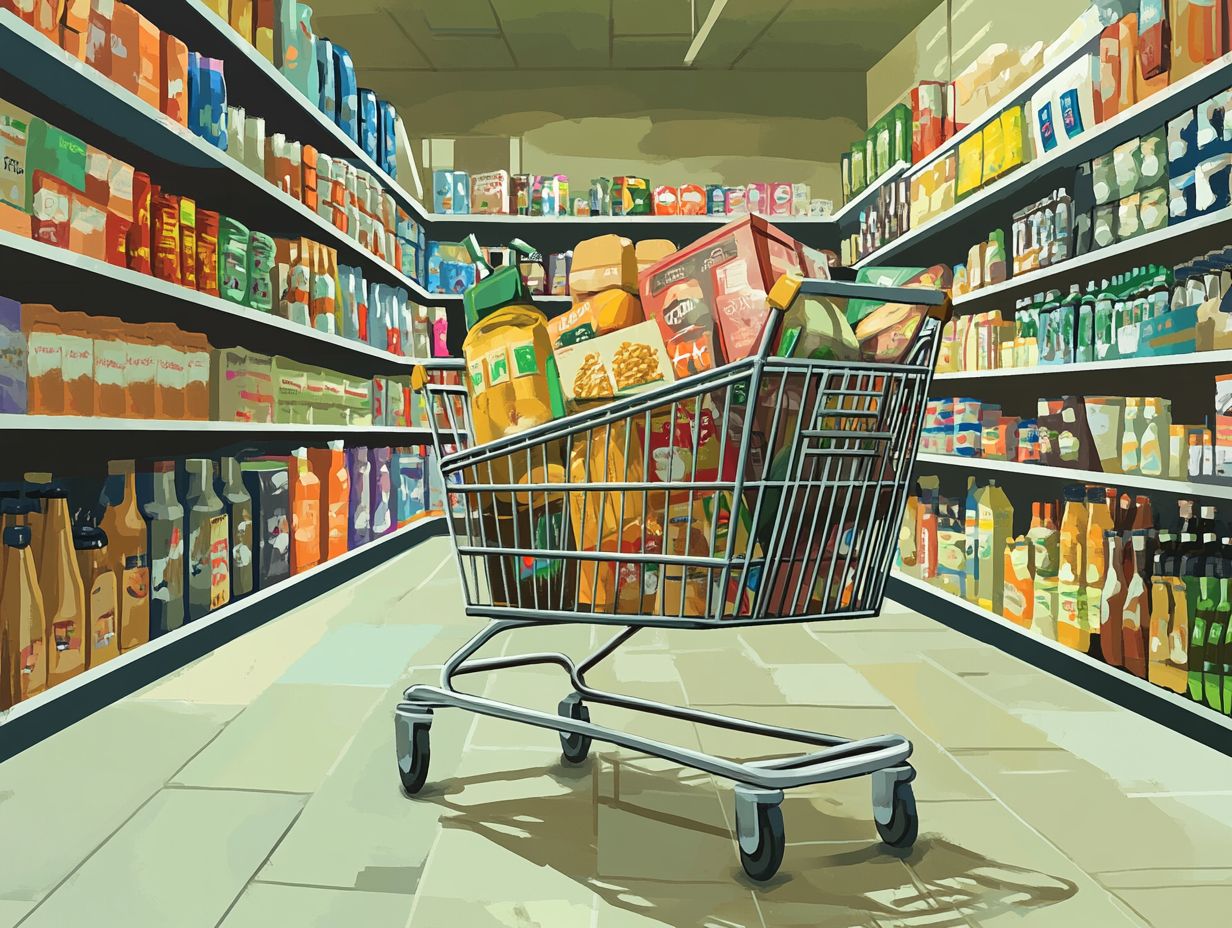The Benefits of Buying in Bulk (and When It’s Worth It)
Bulk buying has become a go-to shopping strategy for many, helping you save both money and time while stocking up on essentials.
But what exactly is bulk buying, and how can it benefit you? This article dives into the advantages of purchasing in larger quantities, discusses when it’s most beneficial, and shares tips to help you maximize your savings.
It also points out some potential drawbacks to watch out for, making sure you make informed decisions that fit your lifestyle. Get ready to change the way you shop!
Understanding Bulk Buying

Understanding bulk buying is key for savvy shoppers like you who want to maximize savings and make smart consumer choices. It’s all about purchasing larger quantities of products, often at discounted rates, which can lead to some serious cost savings and better budgeting.
Whether you’re stocking up on household essentials for your family or prepping for emergencies, bulk buying can also help the environment by cutting down on packaging waste and improving how you manage your inventory.
By looking closely at your shopping habits and preferences, you can take full advantage of bulk purchasing to optimize your pantry and refine your overall shopping strategy.
What is Bulk Buying?
Bulk buying is all about snagging those goods in large quantities, usually at wholesale prices, so you can enjoy a lower price per unit and get the most bang for your buck.
You might find yourself bulk buying groceries, household supplies, or even personal care products. When you go this route, you often end up reaching for those bigger packs of essentials, ensuring you’ve got enough stocked up at home while cutting down on those frequent trips to the store.
This strategy can really shake up your budgeting and spending habits. Since you’re spending less per item, you can allocate your funds more wisely and reduce waste.
By embracing bulk purchasing, you not only save some cash but also play a part in promoting sustainable consumption patterns.
Advantages of Buying in Bulk
You’ll find that buying in bulk comes with a ton of advantages. It gives you the chance to enjoy some serious cost savings, thanks to discounts that can really lower the price per unit.
This shopping strategy doesn’t just help you save money; it also makes grocery shopping easier by cutting down on how often you need to buy and saving you time in the long run.
Plus, bulk buying can have a positive impact on sustainability by reducing packaging waste and helping you build better relationships with vendors, which can lead to higher product quality and freshness.
Cost Savings

Cost savings are one of the biggest reasons you might consider bulk buying. When you purchase in larger quantities, you often snag some appealing discounts that lower the price per unit.
This strategy works wonders for staple items like rice, pasta, canned goods, and household essentials such as paper towels and toiletries, where the savings can really add up. For example, buying a big bag of rice usually costs less per pound than those smaller packages, which makes it a smart choice if you cook often.
It’s important to pair this bulk buying approach with solid financial planning and smart consumption habits. By assessing your current needs and figuring out your storage space, you can make bulk purchases that prevent waste and help you maximize your savings over time.
Convenience and Time Savings
Convenience and time savings are huge perks of bulk buying. When you purchase larger quantities, you can stock up on essentials and cut down on those frequent trips to the store.
This approach not only makes shopping a breeze but also helps you manage your inventory effectively.
By planning ahead and buying in bulk, you can avoid the last-minute shopping chaos and ensure you have all the necessary items readily available at home. This foresight creates a more organized living space and boosts overall efficiency in your household.
Plus, bulk buying often leads to cost savings since buying in larger quantities usually means discounts. It’s a smart move if you want to maximize both your time and budget while keeping your pantry well-stocked.
When Bulk Buying is Worth It
Understanding when bulk buying is worth it means you need to consider several factors that influence your purchasing power and budgeting strategies.
This way, you can make informed decisions that really align with your household needs.
Factors to Consider

When you’re thinking about bulk buying, it’s important to check a few key factors like product expiration dates, your storage space, and any potential risks. This way, you can avoid waste and make smart choices as a consumer.
You really want to consider how your purchasing habits fit with your household’s consumption patterns and family dynamics. Knowing those expiration dates can have a big impact on risk management, helping you plan better for when you’ll actually use those items before they go bad.
It’s crucial to assess the chances of waste. If your family isn’t likely to finish certain bulk products before they expire, those savings from buying in bulk might slip right through your fingers.
So, engaging in mindful consumer behavior that takes into account both your current and future family needs can lead to smarter bulk purchases, turning this into a strategic move rather than a rushed decision.
How to Maximize the Benefits of Bulk Buying
To get the most out of bulk buying, you should come up with a smart strategy. This includes effective budgeting, choosing the right items, and checking out delivery options that fit your lifestyle and needs.
Tips for Smart Bulk Shopping
Smart bulk shopping is all about strategic planning and having a sharp eye for those sweet deals. You want to make informed decisions that fit well with your inventory management and seasonal buying habits.
To really amp up your bulk shopping game, start by assessing your actual needs and consumption patterns. Craft a tailored shopping list that helps you minimize waste. Keeping an organized inventory is key—regularly check those expiration dates and restock items only when you really need to.
Understanding seasonal trends can lead to some serious savings. If you buy in advance during sales, you’ll snag the best prices on those high-demand items. Don’t forget to explore different local stores and use online platforms for price comparisons.
And hey, price matching techniques can help you maximize value, making bulk buying a smart financial move.
Potential Drawbacks of Bulk Buying

Bulk buying can definitely have its perks, but you’ll want to keep an eye on some potential downsides.
Think about things like storage issues, the risk of products expiring before you use them, and that sneaky temptation to impulse buy, which can really lead to overspending.
Storage and Expiration Concerns
Storage and expiration concerns can be real headaches when it comes to bulk buying. You know how it is—buying in bulk can lead to waste if you don’t manage it well.
Without proper planning, you might end up with more items than you can use before they expire, which means unnecessary financial losses and a lot of wasted food. It’s super important to think about things like how much storage space you have, the shelf life of the items, and your family’s consumption patterns.
Using effective inventory management strategies, like a first-in-first-out (FIFO) system, can help you make sure that you’re using older items before the newer ones.
Don’t forget about careful labeling and doing regular inventory checks. These little practices help you keep an eye on expiration dates, allowing you to prioritize what needs to be used first. This way, you’re not just saving money, but you’re also contributing to more sustainable waste management practices.
Impulse Buying and Overspending
Impulse buying can totally throw a wrench in your financial planning, especially when you’re trying to take advantage of bulk buying. It often leads to overspending on stuff you don’t really need.
When you give in to those spontaneous purchasing temptations, it’s all too easy to stray from your original shopping list and budget. This not only diminishes the perks of bulk shopping—like lower costs per unit and more savings—but it can also lead to waste and a whole lot of regret.
Without a solid strategy in place, you might find yourself crossing the line and overstretching your budget, which can spiral into a cycle of debt and disappointment. That’s why taking the time to budget thoroughly and plan ahead is so important. It helps ensure that bulk buying stays a smart move rather than turning into a financial headache.




